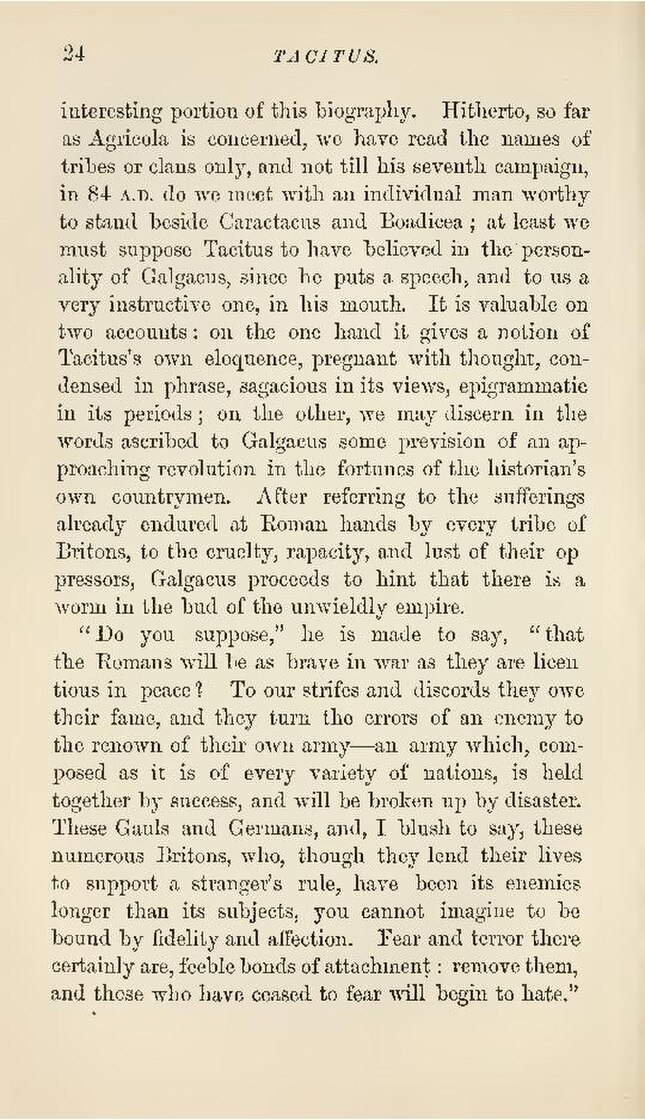interesting portion of this biography. Hitherto, so far as Agricola is concerned, we have read the names of tribes or clans only, and not till his seventh campaign, in 84 A.D. do we meet with an individual man worthy to stand beside Caractacus and Boadicea; at least we must suppose Tacitus to have believed in the personality of Galgacus, since he puts a speech, and to us a very instructive one, in his mouth. It is valuable on two accounts: on the one hand it gives a notion of Tacitus's own eloquence, pregnant with thought, condensed in phrase, sagacious in its views, epigrammatic in its periods; on the other, we may discern in the words ascribed to Galgacus some prevision of an approaching revolution in the fortunes of the historian's own countrymen. After referring to the sufferings already endured at Roman hands by every tribe of Britons, to the cruelty, rapacity, and lust of their oppressors, Galgacus proceeds to hint that there is a worm in the bud of the unwieldly empire.
"Do you suppose," he is made to say, "that the Romans will be as brave in war as they are licentious in peace? To our strifes and discords they owe their fame, and they turn the errors of an enemy to the renown of their own army—an army which, composed as it is of every variety of nations, is held together by success, and will be broken up by disaster. These Gauls and Germans, and, I blush to say, these numerous Britons, who, though they lend their lives to support a stranger's rule, have been its enemies longer than its subjects, you cannot imagine to be bound by fidelity and affection. Fear and terror there certainly are, feeble bonds of attachment: remove them, and those who have ceased to fear will begin to hate."
